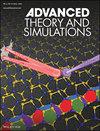动态仿真的微分方程基础模型中人为设计模型和数据预训练模型的桥梁
IF 2.9
4区 工程技术
Q1 MULTIDISCIPLINARY SCIENCES
引用次数: 0
摘要
动态系统的快速模拟是许多科学和工程应用的关键挑战,如天气预报、疾病控制和药物发现。随着最近深度学习的成功,人们对使用神经网络以数据驱动的方式求解微分方程越来越感兴趣。然而,现有的方法要么局限于特定类型的微分方程,要么需要大量的数据进行训练。这限制了它们在许多实际应用中的实用性,在这些应用中,数据通常是稀缺的,或者获取起来很昂贵。为了解决这个问题,提出了一种新的多模态基础模型,称为FMint(基于初始化的基础模型),以弥合人为设计模型和数据驱动模型之间的差距,用于动态系统的快速仿真。FMint建立在一个只有解码器的变压器架构上,具有上下文学习功能,利用数字和文本数据来学习动态系统的通用纠错方案,使用传统求解器的粗解提示序列。该模型在400K个常微分方程(ode)的语料上进行了预训练,并在具有混沌行为和高维的具有挑战性的常微分方程上进行了大量的实验。结果表明,与经典数值求解器相比,所提出的模型在精度和效率方面都是有效的,突出了FMint作为动力系统通用求解器的潜力。与最先进的动态系统模拟器相比,这种方法的精度提高了1到2个数量级,与传统的数值算法相比,它的速度提高了5倍。FMint的代码可在https://github.com/margotyjx/FMint上获得。本文章由计算机程序翻译,如有差异,请以英文原文为准。

FMint: Bridging Human Designed and Data Pretrained Models for Differential Equation Foundation Model for Dynamical Simulation
The fast simulation of dynamical systems is a key challenge in many scientific and engineering applications, such as weather forecasting, disease control, and drug discovery. With the recent success of deep learning, there is increasing interest in using neural networks to solve differential equations in a data-driven manner. However, existing methods are either limited to specific types of differential equations or require large amounts of data for training. This restricts their practicality in many real-world applications, where data is often scarce or expensive to obtain. To address this, a novel multi-modal foundation model, named FMint (Foundation Model based on Initialization) is proposed, to bridge the gap between human-designed and data-driven models for the fast simulation of dynamical systems. Built on a decoder-only transformer architecture with in-context learning, FMint utilizes both numerical and textual data to learn a universal error correction scheme for dynamical systems, using prompted sequences of coarse solutions from traditional solvers. The model is pre-trained on a corpus of 400K ordinary differential equations (ODEs), and extensive experiments are performed on challenging ODEs that exhibit chaotic behavior and of high dimensionality. The results demonstrate the effectiveness of the proposed model in terms of both accuracy and efficiency compared to classical numerical solvers, highlighting FMint's potential as a general-purpose solver for dynamical systems. This approach achieves an accuracy improvement of 1 to 2 orders of magnitude over state-of-the-art dynamical system simulators, and delivers a 5X speedup compared to traditional numerical algorithms. The code for FMint is available at https://github.com/margotyjx/FMint.
求助全文
通过发布文献求助,成功后即可免费获取论文全文。
去求助
来源期刊

Advanced Theory and Simulations
Multidisciplinary-Multidisciplinary
CiteScore
5.50
自引率
3.00%
发文量
221
期刊介绍:
Advanced Theory and Simulations is an interdisciplinary, international, English-language journal that publishes high-quality scientific results focusing on the development and application of theoretical methods, modeling and simulation approaches in all natural science and medicine areas, including:
materials, chemistry, condensed matter physics
engineering, energy
life science, biology, medicine
atmospheric/environmental science, climate science
planetary science, astronomy, cosmology
method development, numerical methods, statistics
 求助内容:
求助内容: 应助结果提醒方式:
应助结果提醒方式:


